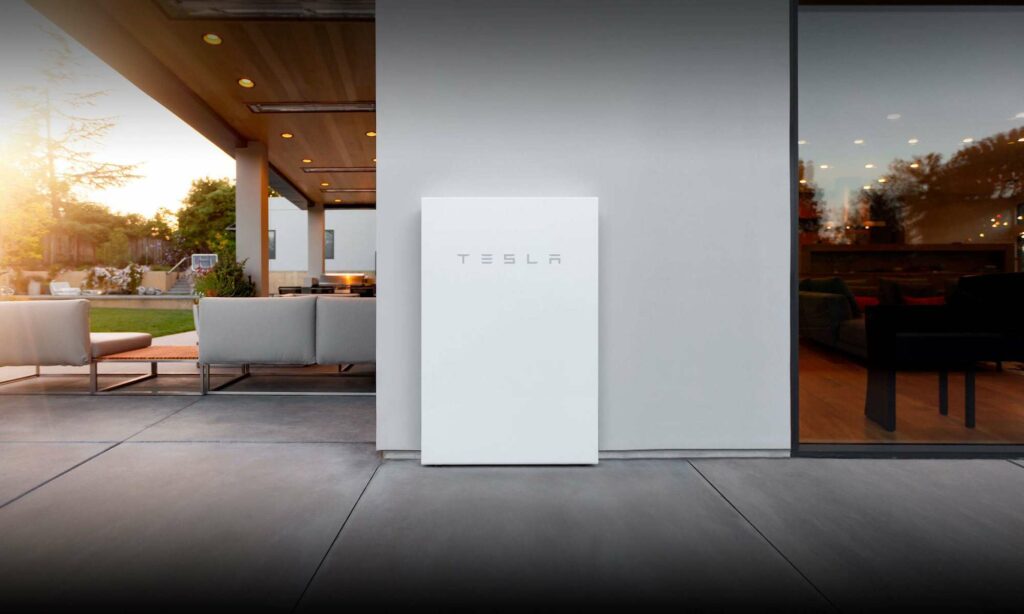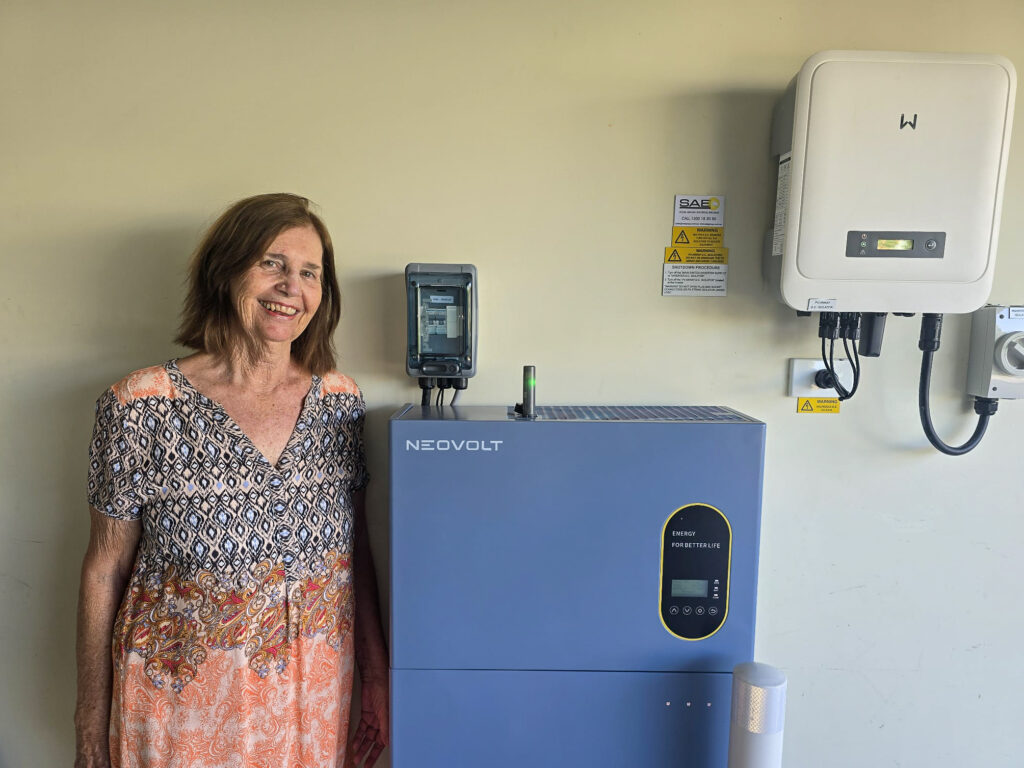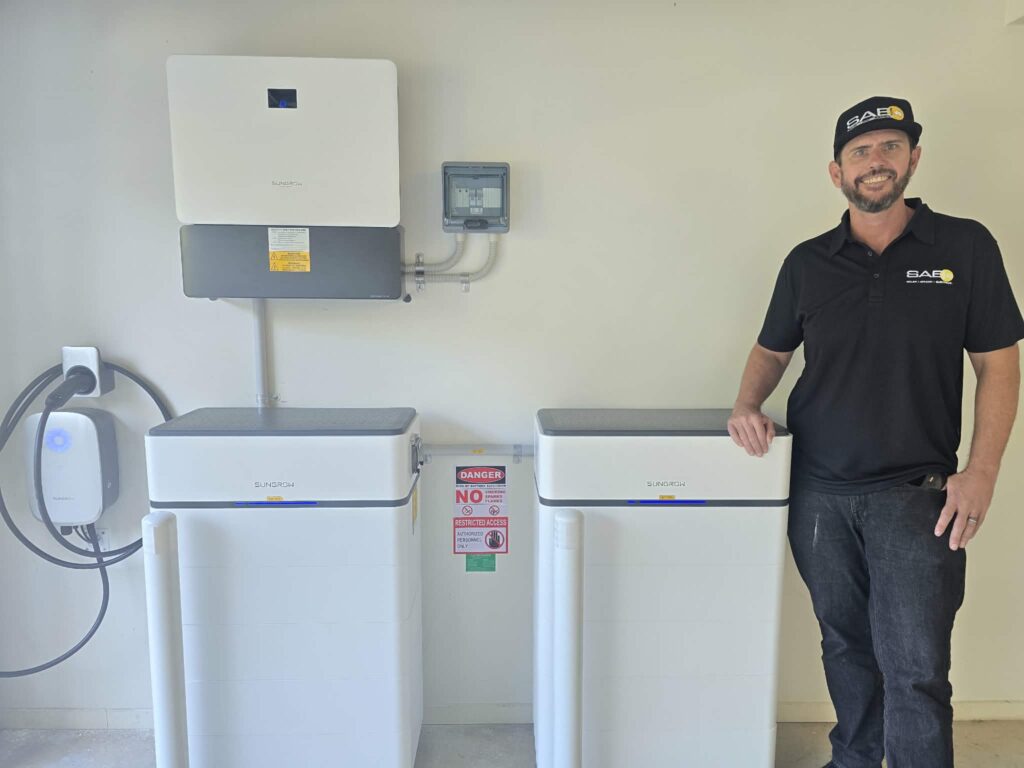
Cheaper Home Batteries Program: Everything You Need to Know
Home » Cheaper Home Batteries Program: Everything You Need to Know
Government Unveils Record Home Battery Rebate Scheme
Australia’s largest-ever home battery rebate is set to transform energy storage across the nation. The Albanese Labor Government has announced a $2.3 billion Cheaper Home Batteries Program aimed at reducing installed battery costs by 30% starting July 1, 2025. This government rebate could save households thousands of dollars upfront on battery installations, the amount saved depends on the size of the battery installed, ranging from 5kWh to 50kWh.
While one in three Australian homes currently have rooftop solar panels—totalling four million installations nationwide—only one in forty households have installed home batteries to store this energy.
The new home battery scheme plans to deliver over one million batteries by 2030, potentially saving Australians up to $1,100 annually on power bills for existing solar owners. Furthermore, households installing both new solar panels and battery systems could save up to $2,300 yearly. According to the Smart Energy Council, if the target of one million batteries is reached, Australians could collectively save $1.3 billion annually on wholesale power prices.
Government Launches $2.3B Home Battery Rebate Scheme
The federal government recently unveiled its $3.52 billion Cheaper Home Batteries Program as part of the 2025-26 Budget. Set to begin July 1, 2025, this initiative aims to deliver significant energy savings across Australia through discounted battery installations.
What is the Cheaper Home Batteries Program?
The Cheaper Home Batteries Program is a nationwide initiative designed to reduce upfront battery costs by 30% for households, small businesses, and community facilities. The program will operate through the existing Small-scale Renewable Energy Scheme, which has successfully delivered solar subsidies since 2011. This major investment is expected to support over one million new battery installations by 2030, addressing the substantial gap between solar adoption and battery storage – currently only one in forty homes with solar have paired battery systems.
How the 30% battery rebate will work
The battery discount will be delivered as an upfront reduction on installed costs, saving households on battery installation. Notably, the program currently states* installations performed before July 1 qualify for the rebate if they are “switched on” after the start date. The subsidy will apply to batteries sized from 5kWh up to 50kWh, with eligible systems generating certificates through the Small-scale Renewable Energy Scheme.
Who is eligible for the subsidy?
Eligibility extends to:
- Households with existing rooftop solar
- Homes installing new solar-plus-battery systems
- Small businesses and community facilities (eligible for support up to 50kWh)
- Properties with batteries sized between 5-50kWh
Additionally, installed batteries must be compatible with Virtual Power Plants (VPPs), ensuring they can be integrated into the broader energy grid if needed. Though not means-tested, the program allows only one rebate per electricity meter.
Most importantly, this federal rebate can be combined with existing state incentives* potentially creating even larger savings for residents in these states. For instance, NSW residents can access both the federal rebate and the state’s Peak Demand Reduction Scheme (BESS 2), essentially “double-dipping” on available incentives.
Need Help With Solar?
Get in touch with our friendly team at SAE Group today! Let us help you make the right choice for you and your unique requirements. Whether you’re looking to get started with solar, or looking to add to an existing system, our team will help provide you with the guidance you need.
Australians Can Save Big on Power Bills with Home Batteries
Home battery systems are proving to be powerful tools for reducing household energy expenses. With electricity prices continuing to rise, batteries offer a way to maximise solar investments and cut reliance on grid power.
How much can households save annually?
Residential batteries provide substantial advantages for Australian homeowners. Households utilising conventional independent battery systems can anticipate yearly utility cost reductions of up to $1200. This reduction increases for batteries integrated with Virtual Power Plants (VPPs). Homes equipped with both solar panels and solar storage technology demonstrate considerably greater resilience against energy pricing fluctuations compared to properties lacking these installations.
For those concerned about investment returns, battery subsidies are shortening payback periods. Research shows that a battery subsidy could reduce the expected payback period by approximately 36% shorter by 2030, making home energy storage increasingly cost-effective.
What are the benefits of solar and non-solar homes?
For solar owners, batteries solve a fundamental problem: storing excess daytime solar energy for evening use. Rather than exporting surplus power to the grid at low feed-in tariffs, homeowners can store this electricity and use it during peak evening hours when rates are highest.
Even without solar panels, homes can benefit from batteries by:
- Charging during off-peak periods when electricity rates are lower
- Discharging during expensive peak hours to avoid high costs
- Gaining protection from blackouts and grid instability
How batteries reduce reliance on the grid
Batteries effectively transform intermittent solar generation into dispatchable power, available whenever needed. During daylight hours, solar panels often generate more electricity than is immediately required. Without storage, this excess energy flows back to the grid, but with a battery, it’s captured for later use.
This time-shifting capability is particularly valuable during evening peak demand periods when households typically draw expensive power from the grid. As explained by the Smart Energy Council, “It’s like putting a rainwater tank on your house to capture water and then have it on tap when you need to drink”. Consequently, batteries not only reduce individual bills but also help stabilise the broader electricity system by decreasing peak demand.
Why Acting Now Could Be Smarter Than Waiting
For homeowners considering a battery system, timing considerations could significantly impact both costs and benefits. Strategic planning around the new battery rebate might offer advantages beyond simply waiting for July.
Installations from today may qualify for the rebate
A key flexibility in the Cheaper Home Batteries Program currently states* systems installed before July 1 qualify for the rebate—provided they’re not “switched on” until the program begins. This creates an opportunity for early adopters to secure installation slots now while still benefiting from the upcoming discount. The provision helps prevent installation backlogs that typically occur when rebates launch, allowing homeowners to position themselves ahead of the rush.
Avoiding price hikes and long wait times
Battery demand is expected to surge once the rebate begins, potentially creating extended waiting periods for installation. In previous state-based rebate rollouts, wait times expanded dramatically as consumers rushed to capitalise on available incentives. Additionally, industry experts anticipate that some manufacturers may adjust pricing in response to the rebate, potentially offsetting some consumer savings.
How NSW residents can double dip on rebates
Homeowners in New South Wales have a unique advantage—they can access both the federal battery rebate alongside the state’s incentives. This “double-dipping” opportunity potentially reduces battery costs even further, offering NSW residents savings beyond the 30% federal discount. The NSW scheme operates separately from the federal program, meaning residents won’t face eligibility conflicts between the two incentives.
Trusted Installers Matter in a Crowded Market
With the announcement of the home battery rebate, misleading marketing tactics have already emerged across the industry. Selecting a qualified installer is becoming increasingly important as the market grows more crowded with opportunistic players.
Misinformation and marketing hype are already spreading
Unfortunately, deceptive advertising about the Cheaper Home Batteries Program began appearing almost immediately after its announcement. Some companies are making false claims that the rebate is “Live Now” when it actually begins on July 1, 2025. Others are creating artificial scarcity by suggesting limited rebate availability, despite there being no cap on the number of subsidies through 2030. Additionally, some advertisements misrepresent rebate levels, claim guaranteed Coalition support, or suggest immediate eligibility without mentioning critical conditions.
Why experience and accreditation matter
Clean Energy Council accreditation is essential for ensuring proper installation and safety standards. Installers must hold either grid-connect and stand-alone accreditation or grid-connect accreditation with battery storage endorsement. This accreditation verifies they’ve completed proper training and understand current standards.
Safety remains paramount with battery storage systems. All lithium batteries must meet the AS IEC 62619 standard, which requires testing under extreme conditions including overheating, overcharging, and physical damage.
What to expect from a quality installation partner
A reputable installer conducts thorough site assessments to determine appropriate battery placement and system compatibility. They’ll ensure proper system integration with existing solar setups and adhere to all safety regulations. Quality installers also provide comprehensive after-installation support, including system monitoring setup and maintenance guidance.
In contrast to one-off installers, established companies like SAE Group maintain long-term customer relationships, ensuring warranty support throughout your battery’s lifespan.
How SAE Group Makes It Easy for You
Partnering with SAE Group for your home battery installation delivers a hassle-free experience from consultation to completion. As Master Electricians specialising in battery technology, we transform what could be a complex process into a straightforward journey.
Our approach begins with a comprehensive energy assessment of your home. Our specialists analyse your unique consumption patterns and identify peak usage times to recommend the ideal battery capacity for your needs. This personalised strategy ensures you receive a tailored solution rather than a generic package.
Installation is handled entirely by our gold master technicians, who manage everything from secure mounting to precise system integration. They carefully select optimal installation locations—typically in garages or temperature-controlled areas—to maximise your battery’s performance and lifespan.
To make your investment more accessible, we partner with leading financial providers offering solutions tailored to your needs. With Brighte, you can access up to $45,000 for solar installations with fortnightly repayments and 0% interest options. Community First Credit Union provides investment flexibility from $5,000 to $1 million with no account-keeping fees and FCS protection. Alternatively, ZIP offers up to $30,000 for solar projects with no upfront payment and interest-free financing for 3-60 months—with approval decisions in under 5 minutes.
With teams strategically located across Brisbane, Tweed Heads, Coffs Harbour, and the Sunshine Coast, ongoing support is always within reach. Our confidence in our workmanship is backed by an industry-leading 30-year warranty.
We eliminate paperwork headaches by handling all documentation, including grid connection requirements. Our team coordinates directly with energy retailers and distributors, removing administrative burdens from your shoulders.
In a market often clouded by misinformation about rebates and incentives, SAE Group stands as your trusted solar partner. We provide transparent guidance on available state rebates and potential federal incentives, positioning you to take full advantage of all eligible benefits regardless of policy changes.
By acting now, you secure current pricing before potential increases and avoid installation delays that may occur if the Cheaper Home Batteries Program is approved.
*Terms and conditions apply and may be subject to change. Current information has been provided by the Australian Government who may update their legislation before July 1st. Please contact us directly or visit the Australian Government Website for full terms and conditions.
Still Have Questions?
Still have questions about whether solar is right for you? Don’t stress! Our friendly team are here to answer any questions you may have about solar systems. Whether you’re looking to add a solar battery to your existing system, or you’re looking to install a new system, our team are here to help!
Share This Post With Others!
Related Post
Recent Posts
Archives







